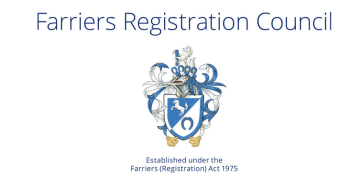Ministers’ efforts to close the attainment gap could be set back as a surge in the number of children eligible for free school meals makes tracking poorer pupils’ progress “increasingly difficult”.
A widening of free school meals eligibility following the move to universal credit in 2018, coupled with increased levels of poverty during the pandemic means hundreds of thousands more children now count as disadvantaged.
As a result, a report by the National Foundation for Educational Research has warned that the government’s flagship attainment gap measure will “not provide a meaningful indication of how the attainment of disadvantaged pupils is changing over time”.
Geoff Barton, general secretary of the ASCL leadership union, said being able to track the progress of disadvantaged youngsters “is a key element in boosting social justice, and the government’s oft-repeated phrase ‘levelling up’”.
He called for an “urgent review” of free school meals eligibility and the pupil premium grant “to ensure disadvantage among children and young people is correctly identified”.
The research found transitional arrangements for free school meals eligibility brought in for the recent change to the benefits system had “significantly” increased the number of pupils eligible for free school meals.
The pandemic has “amplified this trend”, with eligibility rates increasing by around a fifth during 2020 alone.
This means it will be “increasingly difficult” to tell whether changes in the attainment gap are the result of improvements in outcomes or just changes to the makeup of the group being measured.
As of January last year, 1.74 million pupils, or around 21 per cent of the population, were eligible for free school meals, with more than 420,000 having become eligible since the pandemic began.

The research predicted that, assuming pupils continue to become eligible for free school meals at the same rate seen before universal credit was introduced, primary and secondary rates would increase again, by around 2 and 4 percentage points respectively between January 2021 and 2023.
Universal credit arrangements increase FSM eligibility
The universal credit transition arrangements mean numbers will increase further from 2024-25, the research predicted.
Under the measures, pupils eligible for free school meals at any point between April 2018 and next summer will retain their eligibility until the current phase of their education ends, even if their family circumstances improve.
The changing profile of pupils considered disadvantaged is “likely to result in an apparent improvement in the average attainment of this group”, the report found.
The research modelled the impact on different changes in the FSM6 rate on the attainment gap.
It found that a 10 percentage point increase in the FSM6 rate could result in the attainment gap at key stage 4 closing by almost a quarter, if the characteristics of newly-eligible pupils matched those already eligible.
The government should therefore explore the development of a “basket of measures”, including the attainment gap, to “better understand and interpret the evolution of attainment among disadvantaged pupils and their peers”.
This could include “considering how the attainment of disadvantaged pupils is varying
according to the persistence of their disadvantage”.
Consider giving pupil premium to all previous FSM claimants
Although universal credit arrangements have led to a “slight shift” in the profile of those eligible for free school meals, the research found they would help target funding towards pupils who would otherwise not be eligible for the pupil premium.
These pupils have “significantly lower” attainment that non-disadvantaged pupils, and “would benefit” from additional support.
This has prompted researchers to recommend that the government consider extending pupil premium eligibility to all pupils “who have been eligible for FSM at any point in the past”.
A DfE spokesperson said the department was “supporting the most disadvantaged and vulnerable pupils through Pupil Premium funding, which is increasing to more than £2.6 billion in 2022- 23 and is the highest cash terms rate since this funding began”.
“We are levelling up school funding, giving significant increases to every pupil in every school, and are helping pupils make up for learning lost during the pandemic through our ambitious recovery plan.”
The department also said it was “considering” the NFER analysis, “including on free school meals eligibility”.
















Your thoughts